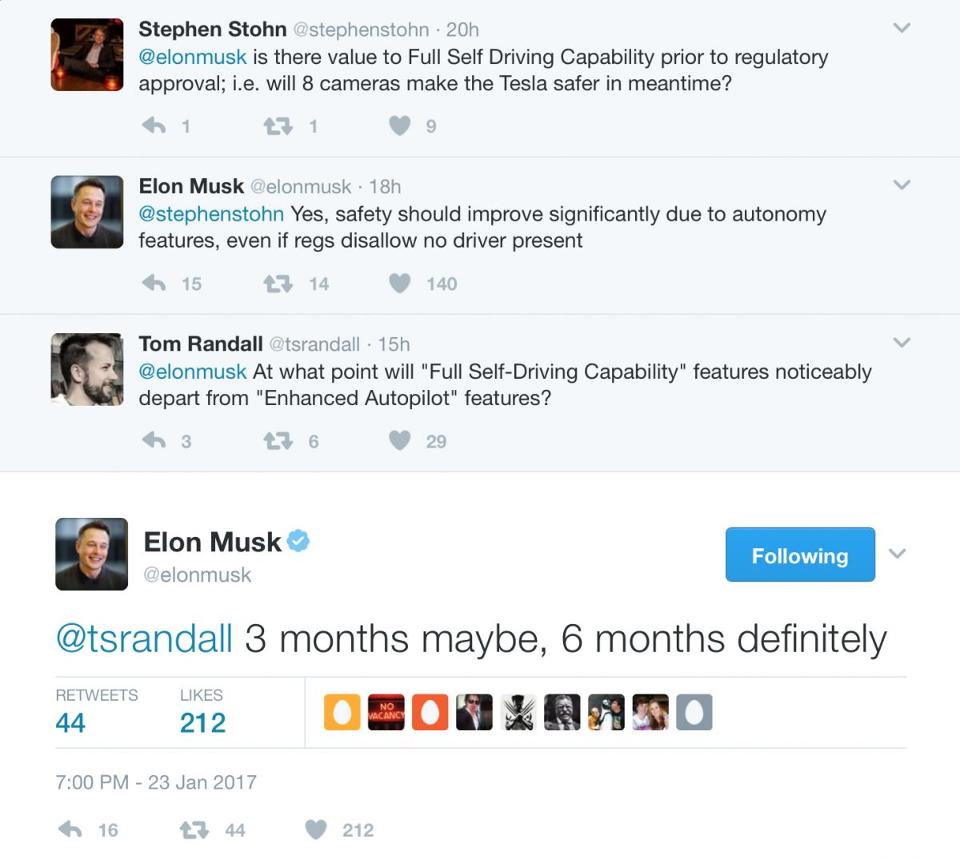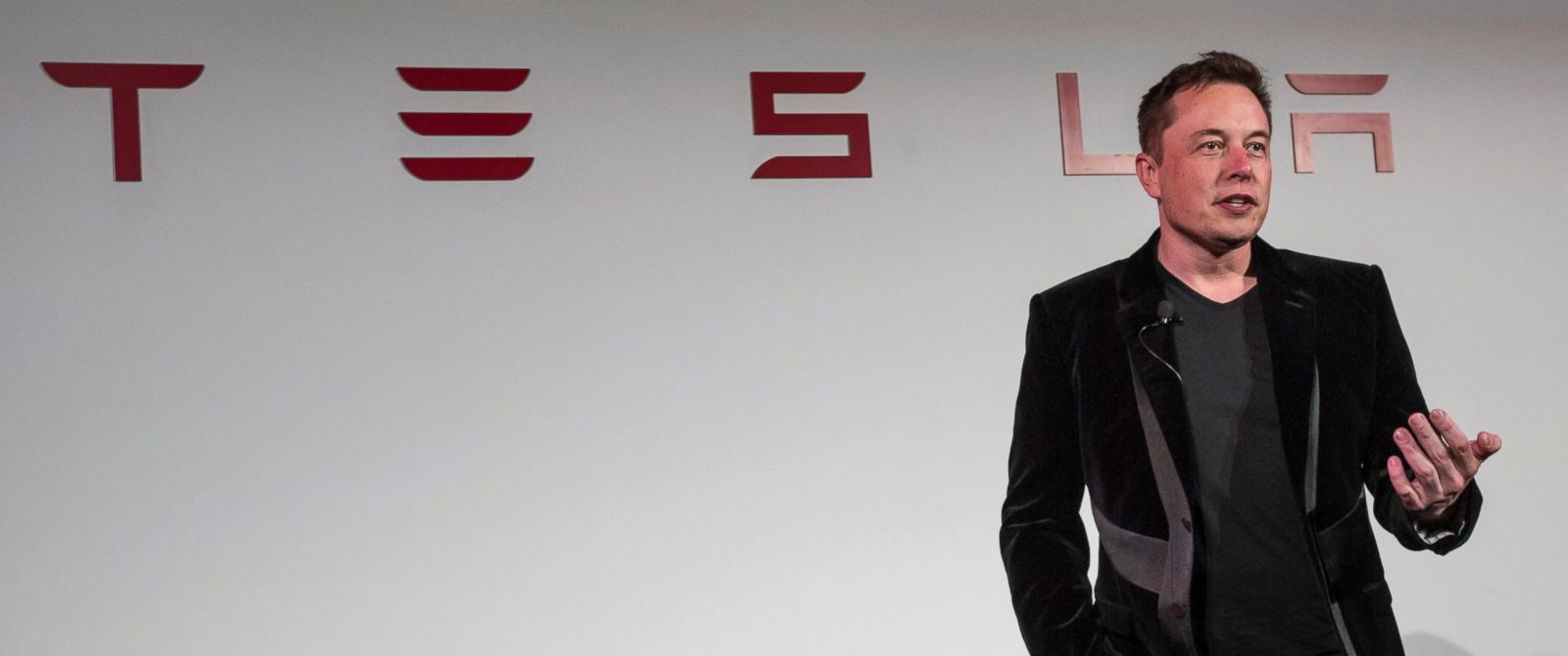Over the past few years, auto industry engineers, scientists, and regulators have been racing to work out the details of how autonomous cars will function so that they can be ready to come to market by the early 2020s. Tesla’s CEO, Elon Musk, believes that his electric vehicles will gain that capability within six months (but probably less).
Earlier this month, Musk took to Twitter to comment about the pace of upgrades to Tesla’s semi-automated Autopilot driving system. In response to a question about the value of adding “Full Self-Driving Capability” to the Palo Alto, Calif.-based company’s products ahead of “regulatory approval,” Musk wrote: “…safety should improve significantly due to autonomy features, even if regs disallow no driver present.”

When a follower asked how soon full self-driving would arrive, Musk responded: “Three months maybe, six months definitely.” Note that Musk didn't define what he means by “Full Self-Driving Capability” in his Twitter comments or how extensive the changes would be.
According to researchers at Carnegie Mellon University and at automakers such as Ford and Toyota, there is much progress needed before vehicles have the ability to make the safest decisions under all circumstances that drivers may face on the road. Designing algorithms capable of handling dangers ranging from black ice, unpredictable behavior of pedestrians, cyclists, and animals, unexpected objects in the road, and even merging and changing lanes in heavy traffic pose challenges to self-driving systems.

Just about every automaker is working to reach level 5, which is when a car can drive fully autonomously under any traffic or weather condition. But according to CEO of Toyota Research Institute, Gill Pratt, nobody in the automobile or IT industries are close to achieving level 5 autonomy. Although current prototype autonomous cars can handle many different situations, there are still others that are beyond current machine competence.
“It's going to take many years of machine learning and many, many more miles of testing,” Pratt said of car-makers shooting for level 5 autonomy.
Musk's Twitter comments came after an investigation by the National Highway Traffic Safety Administration, which was concluded last week, and found no specific defect in Tesla’s Autopilot system that contributed to a fatal crash in Florida that killed a Model S owner while using the feature.
Late last year, Tesla equipped its vehicles with a suite of cameras, radar and sonar sensors, a state-of-the-art Nvidia computing system, and the hardware needed to see all conditions around them and, according to Musk, drive themselves.
Even if the odds are against him, Musk is confident in his rather quick approach. We have just a few months to wait.
What are your thoughts on Elon Musk's time frame and vision of the future? Leave a comment below.
Source: Forbes
Advertisement
Learn more about Electronic Products Magazine





